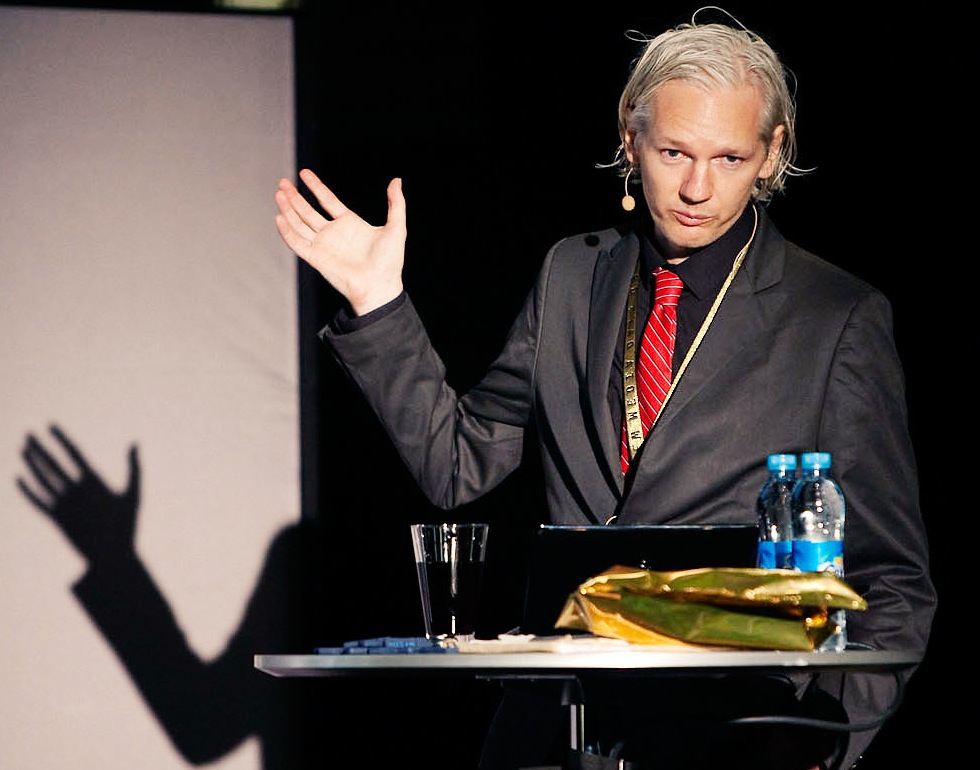
DAILY BEAST: Pentagon investigators are trying to determine the whereabouts of the Australian-born founder of the secretive website Wikileaks for fear that he may be about to publish a huge cache of classified State Department cables that, if made public, could do serious damage to national security, government officials tell The Daily Beast. The officials acknowledge that even if they found the website founder, Julian Assange, it is not clear what they could do to block publication of the cables on Wikileaks, which is nominally based on a server in Sweden and bills itself as a champion of  whistleblowers. MORE
whistleblowers. MORE
RELATED: The State Department and American embassies around the world are bracing for what officials fear could be the massive, unauthorized release of secret diplomatic cables in which U.S. diplomats harshly evaluate foreign leaders and reveal the inner-workings of American foreign policy. Diplomatic and law-enforcement officials tell The Daily Beast their alarm stems from the arrest of a 22-year-old Army intelligence analyst based in Iraq who has reportedly admitted that he downloaded 260,000 diplomatic cables from government computer networks and was prepared to make them public. Specialist Bradley Manning of Potomac, Maryland, who is now under arrest in Kuwait, is also accused of having leaked—to Wikileaks, a secretive Internet site based in Sweden—an explosive video of an American helicopter attack in Baghdad in 2007 that left 12 people dead, including two employees of the news agency Reuters. The website released the video in April. MORE
NEW YORKER: WikiLeaks is a finalist for a Knight Foundation grant of more than half a million dollars. The intended project would set up a way for sources to pass documents to newspaper reporters securely; WikiLeaks would serve as a kind of numbered Swiss bank account, where information could be anonymously exchanged. (The system would allow the source to impose a deadline on the reporter, after which the document would  automatically appear on WikiLeaks.) Assange has been experimenting with other ideas, too. On the principle that people won’t regard something as valuable unless they pay for it, he has tried selling documents at auction to news organizations; in 2008, he attempted this with seven thousand internal e-mails from the account of a former speechwriter for Hugo Chávez. The auction failed. He is thinking about setting up a subscription service, where high-paying members would have early access to leaks. But experimenting with the site’s presentation and its technical operations will not answer a deeper question that WikiLeaks must address: What is it about? The Web site’s strengths—its near-total imperviousness to lawsuits and government harassment—make it an instrument for good in societies where the laws are unjust. But, unlike authoritarian regimes, democratic governments hold secrets largely because citizens agree that they should, in order to protect legitimate policy. In liberal societies, the site’s strengths are its weaknesses. Lawsuits, if they are fair, are a form of deterrence against abuse. Soon enough, Assange must confront the paradox of his creation: the thing that he seems to detest most—power without accountability—is encoded in the site’s DNA, and will only become more pronounced as WikiLeaks evolves into a real institution. MORE
automatically appear on WikiLeaks.) Assange has been experimenting with other ideas, too. On the principle that people won’t regard something as valuable unless they pay for it, he has tried selling documents at auction to news organizations; in 2008, he attempted this with seven thousand internal e-mails from the account of a former speechwriter for Hugo Chávez. The auction failed. He is thinking about setting up a subscription service, where high-paying members would have early access to leaks. But experimenting with the site’s presentation and its technical operations will not answer a deeper question that WikiLeaks must address: What is it about? The Web site’s strengths—its near-total imperviousness to lawsuits and government harassment—make it an instrument for good in societies where the laws are unjust. But, unlike authoritarian regimes, democratic governments hold secrets largely because citizens agree that they should, in order to protect legitimate policy. In liberal societies, the site’s strengths are its weaknesses. Lawsuits, if they are fair, are a form of deterrence against abuse. Soon enough, Assange must confront the paradox of his creation: the thing that he seems to detest most—power without accountability—is encoded in the site’s DNA, and will only become more pronounced as WikiLeaks evolves into a real institution. MORE
